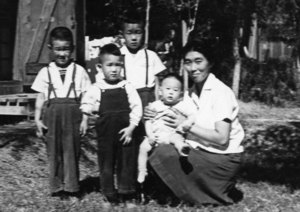Philly.com
 AS A commencement speaker at his high-school graduation in Salinas, Calif., George Ikeda spoke about the importance of civil liberties in the United States.
AS A commencement speaker at his high-school graduation in Salinas, Calif., George Ikeda spoke about the importance of civil liberties in the United States.Three years later, on July 4, 1942 - Independence Day - he became an internment-camp prisoner, taken from his home by the government whose virtues he once extolled.
Ikeda's only crime was his Japanese heritage.
Hirotoshi Nishikawa was 3 when his family was uprooted from their Hollister, Calif., home and taken to an arid desert camp.
He retains few memories of his wretched experience, but the ones that linger are tied to his senses: the heat, the sand, the suicide.

On Feb. 19, 1942, President Franklin D. Roosevelt signed Executive Order 9066, which authorized the military to remove and imprison anyone who was at least one-eighth Japanese by blood.
It didn't matter that Ikeda and Nishikawa were born American, that citizenship to this country was their birthright. They were ordered to report to assembly centers by April taking only what they could carry.
"We weren't physically removed from our homes; we followed orders," Ikeda said. "There's a typical Japanese term meaning 'It can't be helped.' But you couldn't think of anything sadder than leaving everything behind." Read More




Post a Comment